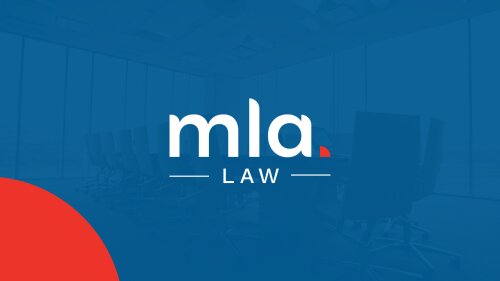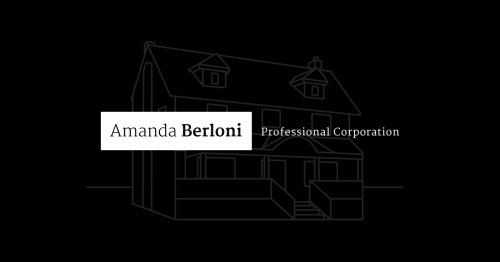Best Restructuring & Insolvency Lawyers in Greater Sudbury
Share your needs with us, get contacted by law firms.
Free. Takes 2 min.
List of the best lawyers in Greater Sudbury, Canada
About Restructuring & Insolvency Law in Greater Sudbury, Canada
Restructuring and insolvency law in Greater Sudbury, Canada, deals with the legal framework and processes that apply when individuals or businesses face financial distress and are unable to meet their financial obligations. Sudbury, as a city within Ontario, follows both federal and provincial laws that govern insolvency, including the Bankruptcy and Insolvency Act (BIA), the Companies' Creditors Arrangement Act (CCAA), and relevant Ontario statutes. These laws are designed to balance the interests of debtors and creditors, facilitate the fair and orderly settlement of debts, and provide options for restructuring debt to avoid liquidation where possible. Whether you are a business owner or an individual, understanding your rights and obligations under these laws is crucial if you find yourself facing financial challenges in Sudbury.
Why You May Need a Lawyer
There are several situations where engaging a lawyer becomes essential in restructuring and insolvency matters in Greater Sudbury. Common examples include:
- Personal bankruptcy filings due to overwhelming consumer debt
- Business owners facing insolvency who wish to restructure to keep their company operating
- Defending against creditor claims or lawsuits
- Negotiating repayment plans with creditors or entering a consumer proposal
- Assisting with the liquidation of assets in an orderly, legal manner
- Navigating complex proceedings under the CCAA for medium to large businesses
- Protecting your legal rights and property during insolvency proceedings
- Debt collection disputes and creditor negotiations
- Cross-border insolvency issues that may arise for businesses
A lawyer with experience in restructuring and insolvency can help you understand your options, represent your interests, and ensure that you comply with all legal requirements throughout the process.
Local Laws Overview
In Greater Sudbury, restructuring and insolvency matters are primarily governed by federal legislation, most notably the Bankruptcy and Insolvency Act (BIA) and the Companies' Creditors Arrangement Act (CCAA). The BIA provides the main framework for both personal and commercial bankruptcies and allows for alternatives such as consumer proposals and Division I proposals for businesses.
Ontario's provincial laws also play a role, especially in areas such as the enforcement of judgments, secured transactions under the Personal Property Security Act (PPSA), and the administration of estates. The Court system in Sudbury, including the Superior Court of Justice, handles local insolvency proceedings. Licensed Insolvency Trustees (LITs) are federally regulated professionals who oversee bankruptcy and proposal processes. Engaging a local lawyer ensures you can navigate the unique administrative practices and local court processes relevant to Sudbury.
Frequently Asked Questions
What is the difference between bankruptcy and insolvency?
Insolvency is the financial state of being unable to pay your debts as they become due, while bankruptcy is a formal legal process for dealing with insolvency under the oversight of a Licensed Insolvency Trustee and the court.
What options do businesses in Sudbury have when facing insolvency?
Businesses may pursue restructuring options such as proposals under the BIA or larger restructuring proceedings under the CCAA. Bankruptcy and voluntary liquidation are also options if restructuring is not viable.
Can filing for bankruptcy eliminate all my debts?
No, not all debts can be eliminated through bankruptcy. Certain debts, such as child support, alimony, student loans under specific conditions, and court fines, may survive bankruptcy.
What is a consumer proposal?
A consumer proposal is a legal alternative to bankruptcy for individuals owing less than $250,000 (excluding a mortgage). It allows you to negotiate to pay a portion of your debts over up to five years.
How long does bankruptcy last in Ontario?
A first-time bankruptcy usually lasts nine months but can be longer if you have surplus income or have previously declared bankruptcy.
How does bankruptcy affect my credit rating?
A first bankruptcy will typically remain on your credit report for six to seven years after discharge, impacting your ability to obtain credit during and after the process.
Will I lose my home or car if I go bankrupt?
Not necessarily. Ontario law allows certain exemptions for personal property, including a portion of the equity in your primary residence and vehicle, but these may be subject to specific limits.
What role does a Licensed Insolvency Trustee play?
A Licensed Insolvency Trustee administers bankruptcy and proposal processes, ensures compliance with legal rules, manages asset liquidation if necessary, and acts as an intermediary between debtor and creditors.
What happens if a business cannot restructure successfully?
If restructuring fails, the business may be forced into bankruptcy or liquidation proceedings, where assets are sold off to satisfy creditor claims.
Can creditors continue legal actions during bankruptcy or a proposal?
Most legal actions are stayed (paused) upon filing bankruptcy or a consumer proposal, preventing creditors from continuing or starting new collection activities, except for certain types of debts.
Additional Resources
If you are dealing with restructuring or insolvency issues in Greater Sudbury, the following resources can provide valuable information and assistance:
- Office of the Superintendent of Bankruptcy Canada - Information on bankruptcy and insolvency processes, and search tools for Licensed Insolvency Trustees
- Licensed Insolvency Trustees serving the Sudbury area
- Ontario Ministry of the Attorney General - Information about Ontario courts, civil procedure, and local court offices
- Sudbury Community Legal Clinic - Offers assistance for eligible individuals
- Chartered Professional Accountants of Canada - Resources for financial literacy, including debt management and budgeting
- Sudbury Chamber of Commerce and local business associations - Support networks for struggling businesses
Next Steps
If you or your business are facing financial difficulties, it is important to seek professional advice as soon as possible to preserve your options. Here are some steps to take:
- Schedule a consultation with a lawyer specializing in restructuring and insolvency law in Greater Sudbury to review your situation
- Gather all financial records, including debts, assets, income, and recent correspondence with creditors
- Consider meeting with a Licensed Insolvency Trustee to explore practical debt relief solutions
- If you are a business owner, discuss possible restructuring strategies and business continuity plans
- Stay proactive by communicating with creditors and avoiding any actions that could worsen your financial or legal position
Taking prompt and informed action will improve your chances of achieving the best possible outcome, whether through restructuring, a proposal, or, if necessary, bankruptcy proceedings.
Lawzana helps you find the best lawyers and law firms in Greater Sudbury through a curated and pre-screened list of qualified legal professionals. Our platform offers rankings and detailed profiles of attorneys and law firms, allowing you to compare based on practice areas, including Restructuring & Insolvency, experience, and client feedback.
Each profile includes a description of the firm's areas of practice, client reviews, team members and partners, year of establishment, spoken languages, office locations, contact information, social media presence, and any published articles or resources. Most firms on our platform speak English and are experienced in both local and international legal matters.
Get a quote from top-rated law firms in Greater Sudbury, Canada — quickly, securely, and without unnecessary hassle.
Disclaimer:
The information provided on this page is for general informational purposes only and does not constitute legal advice. While we strive to ensure the accuracy and relevance of the content, legal information may change over time, and interpretations of the law can vary. You should always consult with a qualified legal professional for advice specific to your situation.
We disclaim all liability for actions taken or not taken based on the content of this page. If you believe any information is incorrect or outdated, please contact us, and we will review and update it where appropriate.











